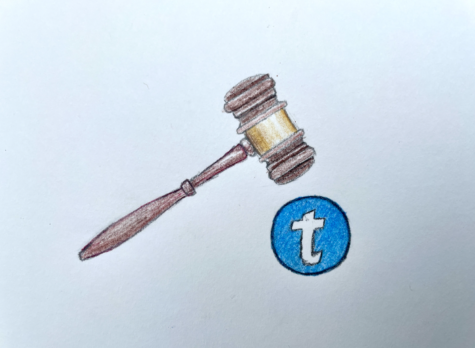Ticketmaster in its flop era
February 2, 2023
Everyone and their mother — my mother included — wanted tickets to Taylor Swift’s Eras Tour. The excitement was palpable in the days preceding their release. If you had an internet connection and at least a passive presence on social media, it was all you heard.
Then, on Nov. 15, disaster struck. According to Ticketmaster, the high demand for Taylor Swift tickets was more than they could handle, despite being the very party to give out presale codes.

With Ticketmaster’s site repeatedly crashing, the extraordinarily long wait times and the price of tickets adding up to more than an arm and a leg, calls for justice rang out across the internet. On Dec. 14, Tennessee Attorney General Jonathan Skrmetti released a statement announcing their dedication to “deliver lasting change and a fair ticket-buying experience for all consumers.” These calls led to a bipartisan push which resulted in a Senate hearing on Jan. 24 with the Judiciary Committee to discuss its possible status as a monopoly.
Among those at the hearing included Clyde Lawrence, lead singer of indie rock band Lawrence. Their song “Don’t Lose Sight” made it to #33 on Top 40 radio, making it “the highest charting Top 40 Radio hit of any fully independent artist.” Lawrence, along with his stage manager and saxophonist Jordan Cohen, were the only two musicians represented at the hearing.
Lawrence largely spoke about he and his band’s struggles with Live Nation, Ticketmaster’s parent company. He focused his critiques on pricing tickets and how fees are broken down. He said, “Of the $42 a fan spent on a ticket, we received $12. And from that $12, we need to pay for touring costs. Roughly 50 percent of our portion is used for touring expenses … that leaves $6 per ticket for us, an eight-piece band … pre-tax.”
In a city where live music and entertainment is the backbone of its cultural identity, the implications of this ticket pricing breakdown are immense for the well-being of local musicians. There are at least 13 venues that partner in some capacity with Ticketmaster. These heavy hitters range from the Smoothie King Center to our very own Avron B. Fogelman Arena at Devlin Fieldhouse. Though some of these venues have been able to partner with other ticket-selling services — for example, I bought my tickets to see Mitski at the Civic Theatre on EventBrite despite it being listed as a Ticketmaster venue — there are other ways Live Nation can still profit from these exchanges.
Live Nation does not only sell tickets through its Ticketmaster service but also acts as a “promoter, owner, and operator of venues.” Through this, it could be possible that you could purchase your concert tickets through one of Ticketmaster’s competitors, and Live Nation would still profit if they were acting as the operator of venues or promoters.
According to Jerry Mickelson, CEO of independent concert promotion company Jam Productions based in Chicago, this is largely the case. He said in the Senate hearing that his company is “forced to sell tickets to its Live Nation competitor through its Ticketmaster system.”
Live Nation Entertainment controls 70% of all primary ticketing and live-event venues marketplace, their financial hold across the entertainment industry is unjust and negatively affects both the consumers and artists alike, particularly those who are smaller and unsigned. For the health of the music scene, both in New Orleans and the country at large, it is vital that large corporations with this degree of power are broken up.






















Leave a Comment